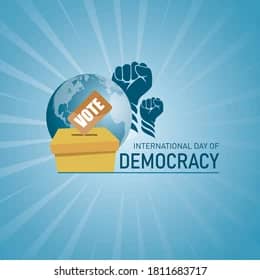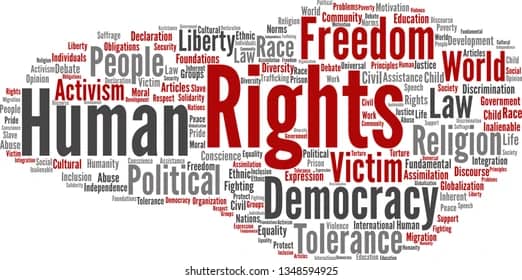
Democracy is a universal value based on the freely expressed will of people to determine their political, economic, social and cultural systems and their full participations in all aspects of life. The international day of democracy was established through a resolution passed by the UN General Assembly in 2007 and was first observed on the 15 of September 2008 encouraging governments to strengthen and consolidate democracy around the world and to promote and uphold its principles. Democracy is far-fetched despite the instruments and institutions promoting its practice all over the world. This explains the need to review democracy around the world and thus the international day of democracy.

The principles of democracy include; the separation of powers, justice, liberty, diversity, patriotism, freedom of assembly and speech, equality and the rule of law. These principles are protected and promoted by international instruments (Universal Declaration of Human Rights, Rome Statute, African Charter etc.) as well as institutions (United Nations, African Union, European Union etc.) to enhance good governance within states all over the world. The international day of democracy is therefore important as it reminds states of these core values and the need to uphold them.

Democratic policies include general elections, measures to strengthen and protect individual opportunities for influence and measures to promote and guarantee the respect for human rights. Human rights establish that all human beings irrespective of country, culture and context are born free and equal in dignity and rights. The link between democracy and human rights is; they are mutually constitutive or interdependent that is democracy cannot be defined without human rights and human rights can be protected effectively only in a democratic state. A functional democracy that accommodates diversity, promotes equality and protect individual freedoms is rapidly becoming the best bet against the concentration of power in the hands of few and the abuse of human rights that results from it (Massimo Tommasoli, Democracy and human rights) . The greatest protection of human rights emanates from a sustainable democratic framework.

Looking at the Cameroonian law, it is affirmative that Cameroon respects democratic values in theory. Cameroon is a signatory to several international instruments (UN Charter and the African Charter) and belong to several international institutions which promotes democratic values. The preamble of the Cameroon constitution highlights democratic values such as freedom of expression and association, the right to vote, equality before the law, protection of minority rights, the rule of law and the right to life. Despite all these, democracy in Cameroon remains a myth. Over the years, and with the advent of the Anglophone crisis, democracy keeps deteriorating in Cameroon. This is seen in the constant violations of human rights. Citizens are being deprived of their rights to expression, association, and right to life. Persons have been arbitrary arrested and imprisoned with no formal trial. Person have also been harassed and falsely imprisoned and media houses banned due to certain things they have said concerning the crisis. This leaves Cameroon at an unrealistic stage of democratic practices.
As we commemorate this day, the call is on the government to ensure the respect of democratic values, and for the citizens to actively participate in democratic practices.
